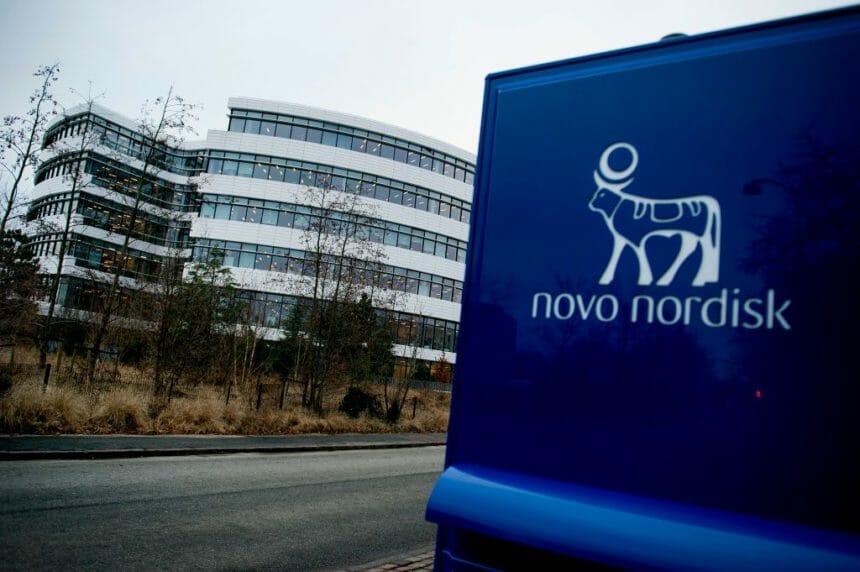Novo Nordisk says it’s gained an upper hand on some of the supply issues that had disrupted last year’s debut of obesity drug Wegovy. However, with demand still uncertain, it’s keeping one eye on supply as it gradually resumes marketing.
The Danish drugmaker said that all dose strengths of Wegovy are now available to retail pharmacies nationwide. This comes after the company faced supply constraints for the weight-loss drug, due to unforeseen high product demand and short-term manufacturing issues.
On its third-quarter earnings call, the company had pledged to restock the U.S. market by the end of 2022 and to restart commercial launch activities that were put on hold last March. Indeed, a Novo spokesperson confirmed that the commercial Wegovy relaunch “is expected to commence in the coming months.”
But rather than go full-steam ahead, the pharma giant is taking a staged approach.
“We will closely monitor prescribing trends and phase promotional efforts as we assess demand,” the spokesperson said. With overall demand “still uncertain,” the Novo spokesperson said. “Keeping supply stable is a priority.”
The pharma company said pharmacies may still “experience normal [Wegovy] delays given the time required to order the product from their local distribution center, and geographical variabilities.”
Diabetes-related med Ozempic, hit by the supply crunch as well, is only partially back. Novo said it’s “experiencing intermittent supply disruptions” for certain doses of Ozempic (the 0.25 mg and 0.5 mg doses) “due to the combination of incredible demand coupled with overall global supply constraints.”
The brands’ social media popularity swelled last year after celebrities such as Elon Musk and other high-profile figures buzzed about their weight-loss benefits. As Wegovy started to become scarce, that led to the nationwide shortage of both drugs.
In disclosing the Ozempic shortfall, the company acknowledged that the off-label use of the diabetes injection for weight loss played a role in exacerbating the supply issues, which the Food and Drug Administration reported in August.
Wegovy and Ozempic have the same active ingredient — semaglutide — but different dosages and FDA-approved uses. Wegovy, a once-weekly self-injection pen, was cleared by the FDA in 2021 for treating obesity after a clinical trial showed it helped patients lose an average of 15% of their body weight, eclipsing the 5% range of many older weight-loss drugs.
Wegovy is only recommended for people who are obese or overweight with a coexisting condition related to weight, such as high blood pressure, type 2 diabetes or high cholesterol. Ozempic was approved in 2017 for use in treating type 2 diabetes and is marketed as such, although weight loss is listed as a “secondary effect.”
They’re both members of the glucagon-like peptide 1 agonist, or GLP-1, class of medicines. These gut hormones work to increase satiety and also control blood sugar levels in people with diabetes. Neither drug is designed for those who want to occasionally slim down.
Although Novo declined to comment on specific marketing plans, it did say that one facet of its outreach, an unbranded marketing campaign with Queen Latifah designed to break the stigma of obesity, has been ongoing.
Obesity remains largely untreated. That’s due in part to prevailing attitudes that obesity – despite its being declared a disease by the American Medical Association a decade ago – is due to the patient’s own failure to diet and exercise. Safety issues with older treatments, as well as their modest efficacy, also played a role.
The Wegovy relaunch is but one factor set to drive what analysts predict will be a big expansion of the U.S. obesity market in coming years. Worldwide revenues from obesity drugs are set to grow to $54 billion by 2030, according to a recent report by analysts from Morgan Stanley. That’s up from $2.4 billion in 2022.
Novo and Eli Lilly, whose similar GLP-1 drug Mounjaro (tirzepatide) was approved last year for diabetes and in October snagged fast-track designation for its weight loss version of the drug, will capture a 40% share of this eventual top-12 therapeutic category, the analysts predict.
Tirzepatide helped obese people lose as much as 22.5% of their body weight in a Lilly study, a result on par with the effectiveness of bariatric surgery. In the meantime, physicians have reported that Mounjaro is similarly being prescribed off-label for weight loss and is also in short supply.







